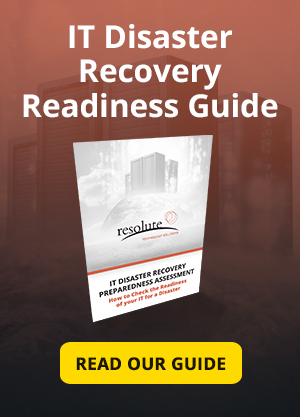Today’s software applications – both on-prem and cloud-based – are becoming increasingly complex and challenging to manage on a daily basis.
But while the need to manage IT infrastructure, hardware, and devices is well-understood, many businesses don’t think to include their core applications as part of their IT management solution.
So it’s no surprise that demand for Application Management Services (AMS) is on the rise, with organizations worldwide projected to spend 87.60 billion on it by 2025. This growth is being driven in part by the need for businesses to improve their efficiency and service delivery while reducing their costs.
What Are Application Management Services?
Applications are responsible for running your business. Supporting them requires there to be an underlying infrastructure in place connecting the business with the rest of the world via networks – regardless of whether they run in the cloud, are customized builds, or operate on-prem or as a mobile app.
Even commercially-available off the shelf products need regular management. Apps need care, maintenance, and attention daily.
For your business to function and grow, you have to:
- Protect applications from viruses and malware
- Ensure there is enough database space
- Ensure the operating system is up to date
- Provide hardware support
- Manage upgrades and patches
- Ensure scalability in case you need to add users
Much like building maintenance needs plumbers, carpenters, and electricians to keep it running efficiently – your IT team needs to have experts (programmers, database, operations) in place who specialize in managing the health of your applications.
Given that it takes more than one person or one skill set to do that, it can be difficult for small to medium-sized business to maintain that range of skills on their IT staff.
That’s why businesses are turning to outsourcing as a managed application solution: so that they can gain access to those skill sets as needed to ensure optimal business process results without having to invest in added personnel.
Although multiple skill sets are required, it may not translate to multiple full-time internal employees thus better leveraging the skills from a managed service on a continual basis.
Learn more about application management:
- Why You Need Application Managed Services
- Should You Outsource Application Management Services?
- Advantages and Disadvantages of Application Management Services
3 Application Management Services Trends To Watch
Trend #1: Growing Application Complexity Will Drive AMS Adoption Growth
Applications are becoming increasingly difficult to manage for several reasons.
Older legacy apps in the marketplace are frequently finding themselves orphaned by their creators, or they require sophisticated workarounds and to maintain compatibility.
Meanwhile, current apps are always evolving; new extensions are released, features are added, all based on different technology requirements. In today’s world, most businesses have to juggle a combination of proprietary apps, packaged apps, and cloud-based apps.
The complexity rises the more applications an organization adds. For example, as you grow your enterprise or split it into different products, channels, or lines of business – and add more applications to support it – you’ll also subsequently get more extensions to manage.
They might incorporate eight or 10 different kinds of technology, written in five different coding languages needing to be supported by three or four databases each. Management of each of these application portfolios requires support on an ongoing basis, requiring a vast amount of skills and experience.
As well, the integrations between the applications may be written in an entirely different language or set of ETL or ESB tools and often must be maintained alongside of the application changes.
As businesses struggle under the weight of increased complexity, look for managed application services to continue their upward trajectory in 2018
Trend #2: Teams Shifting Away From Legacy Application Support
As software ages, supporting it requires more effort and resources, often at the expense of new application development. As such, companies are starting to split their application management duties, outsourcing the legacy management tasks while moving their teams toward new projects.
2018 will continue to see more businesses hand over day-to-day legacy application support duties to an application managed services provider while deploying their in-house teams to more strategic roles.
This approach offers two main advantages.
First, your team will have gained a considerable amount of expertise regarding your business needs and technology. You can leverage this knowledge to build your future replacement applications that much more easily aligns with your organizational goals.
Second, moving teams away from legacy support roles and onto new projects create expanded career path opportunities for your employees. You’ll ultimately be laying the groundwork for better stability among your teams and improving employee retention rates.
Trend #3: Continued Outsourcing of Repeatable Tasks For Scalability
Finally, businesses are recognizing that the unpredictable volume of application management-related repeatable tasks is becoming an unnecessary drain on time and resources. For that reason, 2018 will see service providers continue to assume these types of regular application support tasks.
These day-to-day tasks such as deploying patches and upgrades, monitoring, and utilization of resource management are critical for keeping apps running properly.
However, depending on variable business needs – say a sudden burst of employee growth leads to a surge in application demand – you may find yourself limited by the size of your local team.
Outsourcing these repeatable, day-to-day tasks gives you the flexibility to scale your business operations as needed. You won’t have to worry about having the right number of IT personnel in place to handle these functions; your AMS provider will manage it for you.
Managed Application Support Trends Continue in 2018
With an ever-increasing demand for applications contributing to a growing level of complexity, businesses will continue to turn to application management services providers as part of a broader IT management strategy to improve efficiency with reduced budgets.
Resolute Technology Solutions offers a complete suite of IT Consulting, Managed IT, and Outsourced IT solutions – including full management of your core applications. To learn how we can boost your business’ efficiency while lowering your operating costs, contact us.
You might also like:
- How to Improve Legacy and Business Applications without Expensive Modernization
- How to Manage the Costs of Your Outdated Legacy Applications
- How to Structure Your IT Team to Manage Multiple Business Applications
[]








